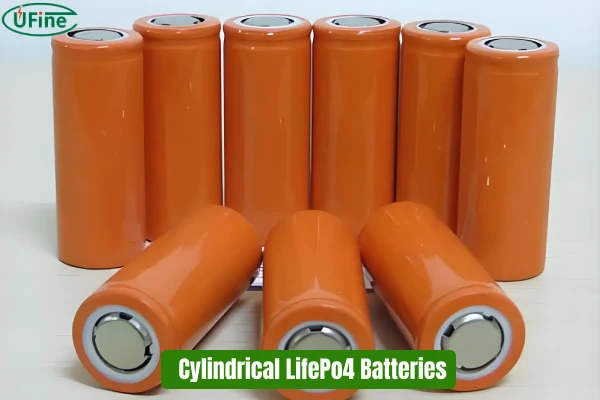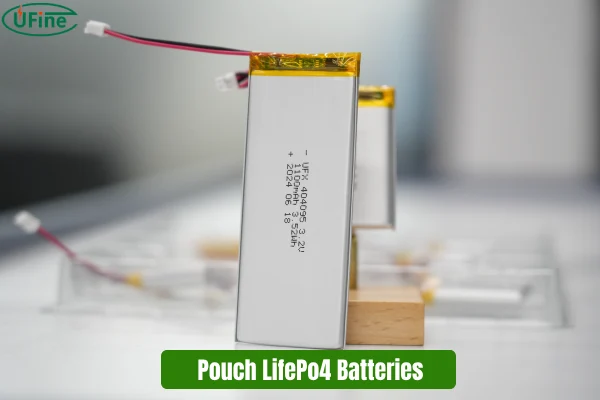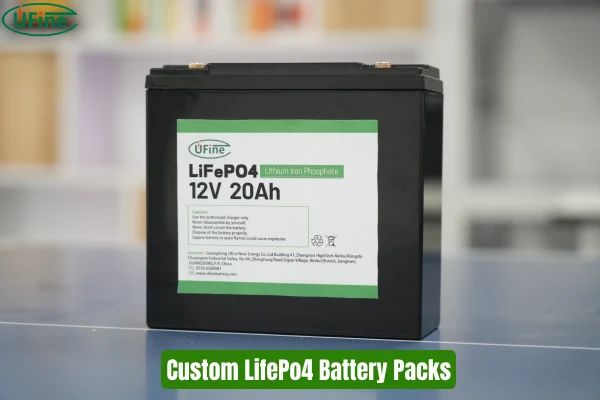In our increasingly tech-savvy world, the importance of choosing the right power source cannot be overstated. Small LifePo4 (Lithium Iron Phosphate) batteries have gained popularity due to their unique properties and applications. However, selecting the most suitable battery for your needs can be daunting. This comprehensive guide will provide you with essential insights into small LifePo4 batteries, ensuring you make an informed decision.
Part 1. Small LifePo4 battery overview
What is a LifePo4 Battery?
LifePo4 batteries are a type of lithium-ion battery characterized by their use of lithium iron phosphate as the cathode material. This innovation offers numerous advantages, including enhanced safety, thermal stability, and a longer cycle life compared to traditional lithium-ion batteries.
Key Characteristics
-
Safety: LifePo4 batteries are renowned for their stability. They have a lower risk of thermal runaway, making them safer in high-temperature environments.
-
Longevity: With a typical cycle life exceeding 2,000 charge cycles, these batteries outlast many alternatives, providing excellent long-term value.
-
Fast Charging: Capable of rapid charging, LifePo4 batteries minimize downtime without compromising battery health.
-
Low Self-Discharge Rate: These batteries retain their charge longer when not in use, which is particularly beneficial for backup systems and infrequently used devices.
-
Environmental Impact: LifePo4 batteries are more environmentally friendly, containing no toxic heavy metals and being fully recyclable.
Part 2. Types of small LifePo4 battery
Small LifePo4 batteries come in several configurations, each designed for specific applications:
1. Cylindrical LifePo4 Batteries
Cylindrical batteries are common in many consumer devices, such as power tools and flashlights. Their robust design allows them to handle high currents effectively, making them suitable for demanding applications.
2. Prismatic LifePo4 Batteries
Prismatic batteries are rectangular and often used in applications requiring space efficiency. Their flat design allows for better integration into compact devices, such as smartphones and tablets.
3. Pouch LifePo4 Batteries
Lightweight and flexible, pouch batteries are ideal for portable electronics. Their unique design allows manufacturers to create custom shapes, fitting them seamlessly into various devices.
4. Custom LifePo4 Battery Packs
Many manufacturers offer tailored solutions, combining multiple cells to create a battery pack that meets specific voltage and capacity needs. This customization is particularly useful for specialized equipment.
Part 3. Why is small important?
Portability and Convenience
Small LifePo4 batteries are designed with portability in mind. Their lightweight nature makes them perfect for devices that require mobility, such as drones, electric scooters, and portable medical equipment.
Space Efficiency
In an era where space is at a premium, small batteries provide a solution without sacrificing performance. Their compact design allows for innovative product designs, facilitating the development of smaller and lighter devices.
Versatility
Despite their size, small LifePo4 batteries deliver substantial power. This versatility opens the door to applications beyond consumer electronics, including industrial machinery and renewable energy storage systems.
Part 4. Devices using small LifePo4 batteries
Small LifePo4 batteries power a diverse array of devices across various sectors, including:
-
Portable Electronics: Essential for smartphones, tablets, and laptops due to their efficiency and reliability.
-
Electric Vehicles: Widely used in electric scooters, bicycles, and cars, providing the necessary power for performance and endurance.
-
Medical Devices: Critical for portable medical equipment, such as blood glucose monitors and defibrillators, thanks to their safety and longevity.
-
Renewable Energy Systems: Perfect for storing energy from solar panels, ensuring a consistent power supply for homes and businesses.
-
Power Tools: Commonly found in cordless tools, offering high energy density and rapid charging capabilities.
Part 5. What to consider when buying small LifePo4 batteries
When purchasing a small LifePo4 battery, several factors deserve careful consideration:
1. Capacity and Energy Requirements
Capacity, measured in milliamp-hours (mAh), determines how much energy the battery can store. It’s essential to match the battery’s capacity with your device’s energy requirements to avoid underperformance or frequent recharges.
2. Size and Compatibility
Confirm the dimensions of the battery to ensure it fits snugly within your device. Measure the battery compartment and compare it with the battery specifications to avoid compatibility issues.
3. Voltage and Power Output
Voltage compatibility is critical. Most devices are designed to operate within specific voltage ranges. Using a battery with incorrect voltage can damage your device. Always check the voltage ratings before making a purchase.
4. Cycle Life and Durability
Cycle life refers to the number of charge-discharge cycles a battery can undergo before its capacity significantly diminishes. Opt for batteries with high cycle life ratings, as they offer better longevity and value for money.
5. Brand Reputation and Reviews
Choose batteries from reputable manufacturers known for quality and reliability. Research customer reviews and ratings to gauge the performance and safety of the battery.
6. Safety Features
Safety should be a top priority. Look for batteries equipped with built-in safety features, such as overcharge protection, short-circuit protection, and thermal management systems to prevent overheating.
Part 6. Small LifePo4 battery manufacturer
Ufine Battery
Ufine Battery is a prominent Chinese manufacturer specializing in lithium battery solutions. They provide a wide range of customizable options, including LifePo4 batteries, tailored to meet diverse needs. Their commitment to quality and innovation ensures that customers receive reliable and efficient power solutions.
Why Choose Ufine Battery?
Customization: Ufine offers tailored battery solutions to fit specific applications, ensuring optimal performance for your devices.
-
Quality Assurance: With rigorous testing and quality control processes, Ufine guarantees the reliability and longevity of its products.
-
Expertise: With years of experience in the industry, Ufine provides valuable insights and support for selecting the right battery.
Part 7. Conclusion
Selecting the right small LifePo4 battery is a multifaceted process that requires careful consideration of your specific needs. By understanding the various types, characteristics, and essential factors to consider, you can confidently choose a battery that enhances your device’s performance and longevity. Always prioritize safety and reliability to ensure your investment pays off in the long run. With the right information and resources, you are now prepared to make an informed choice.
Related Tags:
More Articles

How to Choose the Best Floor Scrubber Battery for Commercial Cleaning?
Selecting the ideal floor scrubber battery ensures a long runtime, rapid charging, and minimal maintenance for efficient commercial cleaning operations.
Battery for Blower vs Battery for Leaf Vacuum: Which One Should You Choose?
Battery for blower vs leaf vacuum—learn the key differences in power, fit, and runtime to choose the right battery for your outdoor tool needs.
How to Choose the Right Battery for Blower?
Choosing the right blower battery? Consider voltage, capacity, chemistry & usage. This guide helps match the best battery for peak performance.
How to Choose the Best Insulated Battery Box for Lithium Batteries?
Choosing the Best Insulated Battery Box for Lithium Batteries? Discover key factors such as size, material, and safety for optimal protection and performance.
7 Critical Elements on a Lithium Battery Shipping Label
What must be on a lithium battery shipping label? Learn 7 key elements to ensure safety, legal compliance, and correct handling across all transport modes.








